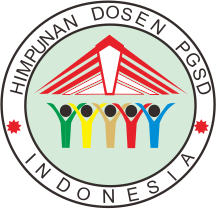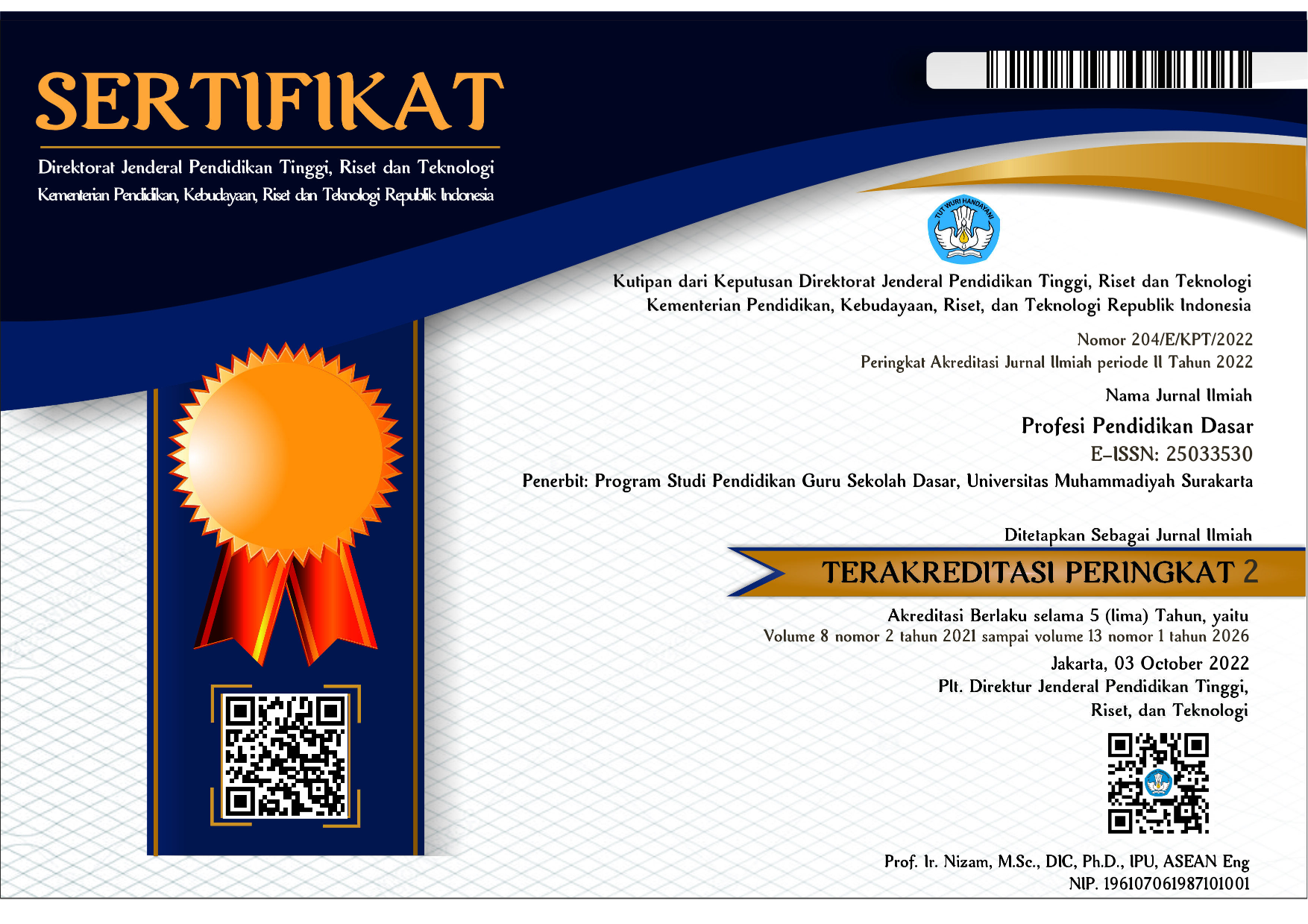PENERAPAN PEMBELAJARAN PROBLEM BASED LEARNING (PBL) UNTUK MENINGKATKAN HASIL BELAJAR MATEMATIKA SISWA KELAS IV SEKOLAH DASAR
Fida Rahmantika Hadi(1*)(1) IKIP PGRI Madiun
(*) Corresponding Author
Abstract
The purpose of this study was to describe the steps to the application of PBL learning to improve student learning outcomes in the material fractions. This research was a class act. In this study the data source was the teacher and the student. Data collection techniques used in this study consisted of (a) observation, (b) interviews, and (c) test. Methods of data analysis used in this research is descriptive qualitative and descriptive comparative. The steps of learning by PBL method are (1) the stage of cooperation where students formed into groups of 4-5 students, (2) the orientation of students to the problem, namely the provision of problems related to everyday life, (3) organization students to learn independently in a group, (4) guided inquiry groups using worksheets to gather the appropriate information, and (5) develop and present the results of discussions through presentations to the class. The resulting increases in students’ mathematics learning of the results of the pre-action test 71.31 and increased in the first cycle to 75.78, on the second cycle increased by 82.63.
Keywords
Full Text:
PDFReferences
Amir, M. Taufiq. 2008. Inovasi Pendidikan Melalui Problem Based Learning. Jakarta: Kencana.
Arends, Richard I. 2008. Learning to Teach. Yogyakarta: Pustaka Pelajar
Arikunto, Suharsimi. 2006. Prosedur Penelitian: Suatu Pendekatan Praktik. Jakarta: PT Rineka Cipta.
Sanjaya, Wina. 2009. Strategi Pembelajaran Berorientasi Standar Proses Pendidikan.
Jakarta: Kencana Prenada Media Group .
`Sugiyanto. 2008. Model-model Pembelajaran Inovatif. Surakarta: Panitia Sertifikasi Guru
Rayon 13.
Trianto. 2007. Model-Model Pembelajaran Inovatif Berorientasi Konstruktivis. Jakarta: Prestasi Pustaka.
Wiyono, Bambang Budi dan Burhanuddin. 2007. Metodologi Penelitian (Pendekatan
Kuantiatif, Kualitatif, dan Action Research). Malang: FIP Universitas Negeri Malang.
Article Metrics
Abstract view(s): 2344 time(s)PDF: 2030 time(s)
Refbacks
- There are currently no refbacks.


















